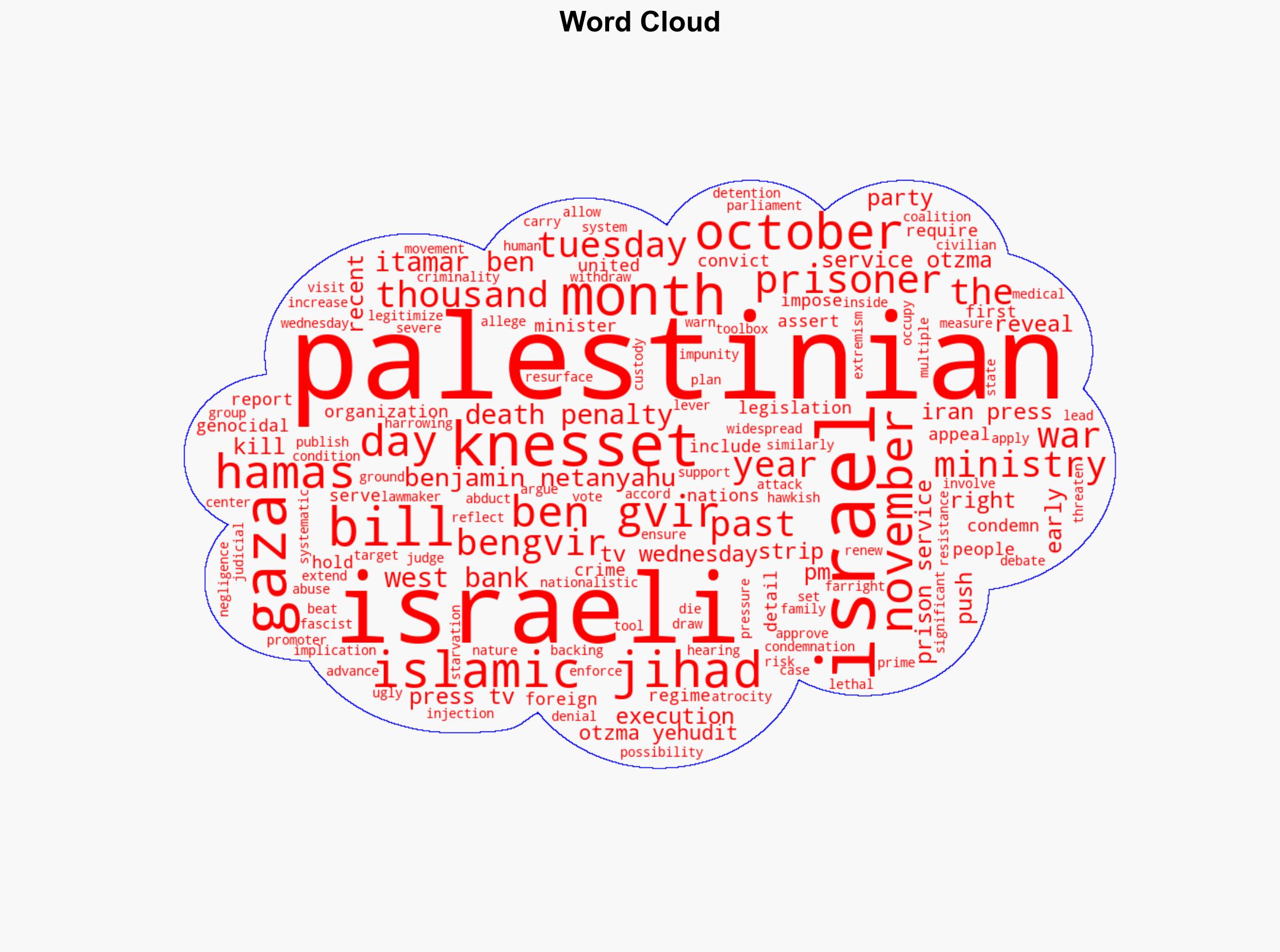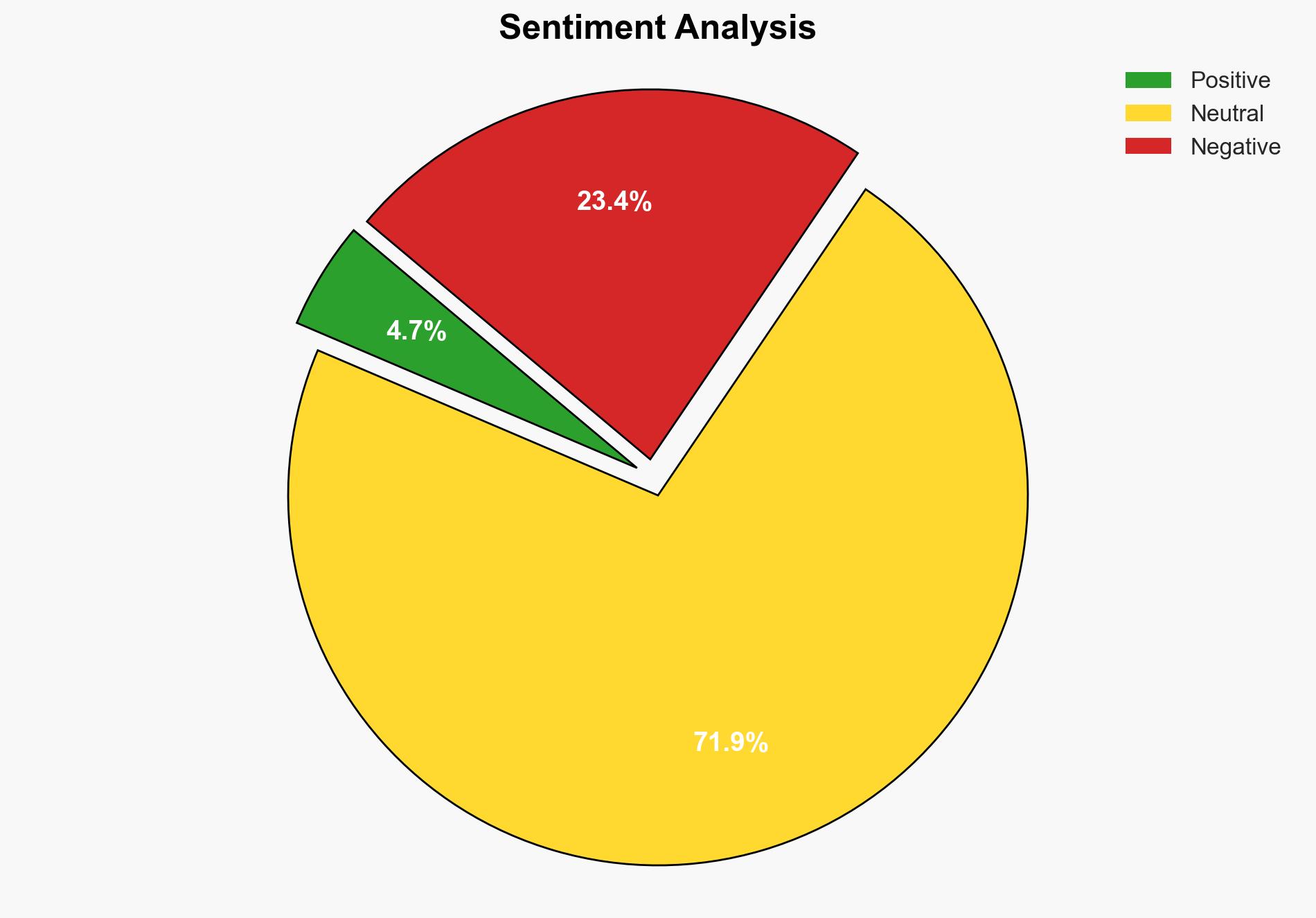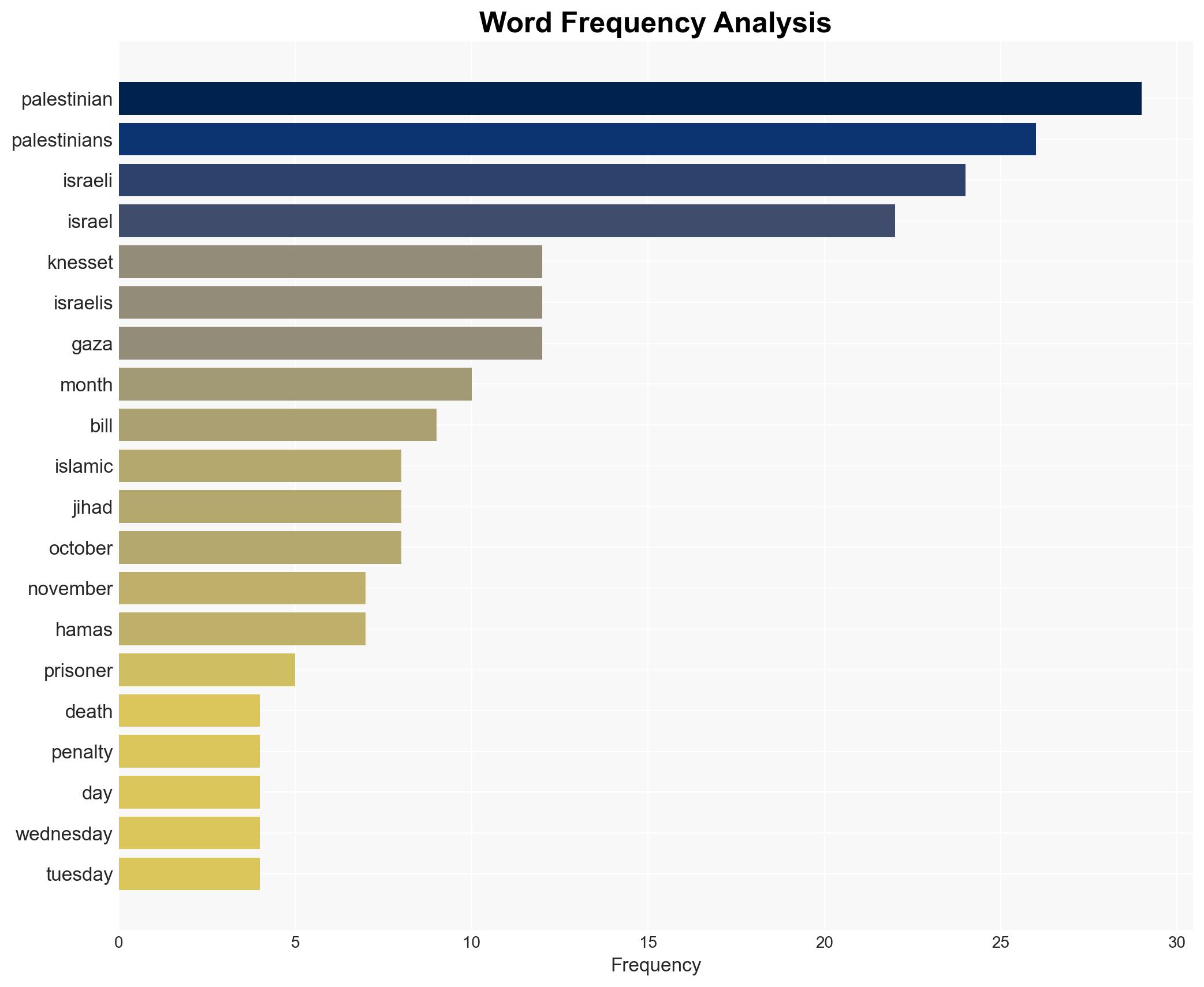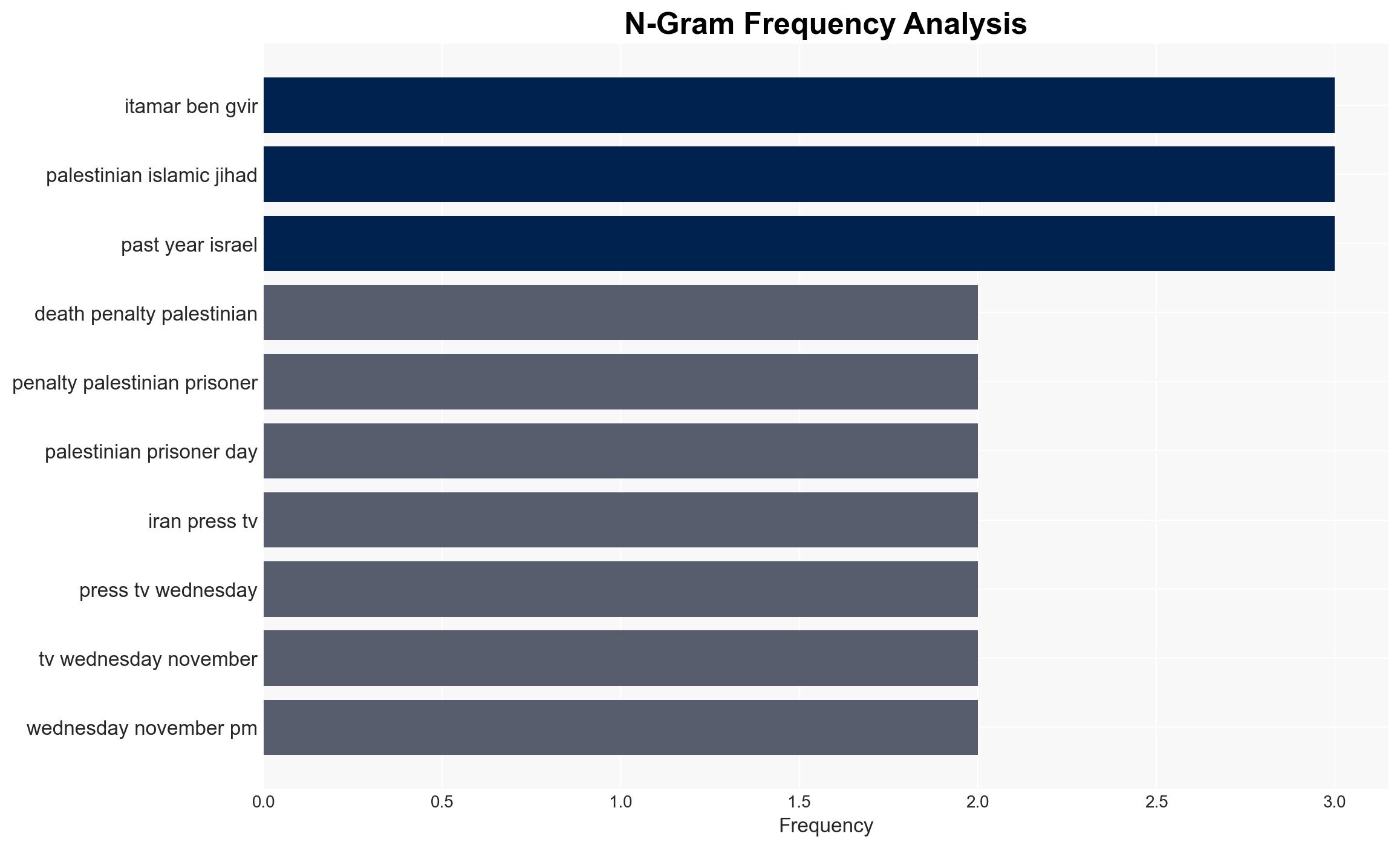Israeli Knesset debates death penalty for Palestinian prisoners ‘within 90 days without appeal’ – Globalsecurity.org
Published on: 2025-11-20
AI-powered OSINT brief from verified open sources. Automated NLP signal extraction with human verification. See our Methodology and Why WorldWideWatchers.
Intelligence Report:
1. BLUF (Bottom Line Up Front)
The Israeli Knesset’s debate on imposing the death penalty for Palestinian prisoners represents a significant escalation in Israeli-Palestinian tensions. The most supported hypothesis is that this legislative move is primarily a political maneuver by far-right elements within Israel to consolidate power and exert pressure on Palestinian groups. Confidence Level: Moderate. Recommended action includes diplomatic engagement to de-escalate tensions and monitoring of regional responses.
2. Competing Hypotheses
Hypothesis 1: The bill is a strategic move by far-right Israeli factions to consolidate political power domestically by appealing to nationalist sentiments and exerting pressure on Palestinian groups.
Hypothesis 2: The bill is primarily a deterrent measure aimed at reducing attacks on Israelis by creating a legal framework for severe punitive action against convicted Palestinians.
Hypothesis 1 is more likely due to the timing of the bill’s introduction, coinciding with political pressures within Israel and the involvement of the Otzma Yehudit party, known for its hardline stance. Hypothesis 2 lacks support given the historical context of Israeli-Palestinian relations and the potential for exacerbating tensions rather than deterring violence.
3. Key Assumptions and Red Flags
Assumptions include the belief that the bill will pass through the Knesset without significant opposition, and that its implementation will not provoke substantial international backlash. Red flags include the potential for increased violence in response to perceived injustices and the use of the bill as a tool for political leverage rather than genuine security concerns. Deception indicators may involve misrepresentations of the bill’s intent and scope by its proponents.
4. Implications and Strategic Risks
The bill’s passage could lead to heightened tensions and violence in the region, particularly in Gaza and the West Bank. It risks undermining Israel’s international standing and could trigger economic and diplomatic repercussions. The potential for cyber retaliation by Palestinian groups or their allies also exists, targeting Israeli infrastructure. The bill could further polarize Israeli society and strain relations with key allies.
5. Recommendations and Outlook
- Engage in diplomatic dialogue with Israeli and Palestinian leaders to de-escalate tensions.
- Monitor regional reactions and prepare for potential retaliatory actions.
- Encourage international mediation efforts to address underlying grievances.
- Best-case scenario: The bill is rejected or significantly amended, reducing tensions.
- Worst-case scenario: Passage of the bill leads to widespread violence and international condemnation.
- Most-likely scenario: The bill passes with modifications, leading to increased regional tensions but limited immediate violence.
6. Key Individuals and Entities
Itamar Ben Gvir (Otzma Yehudit party leader), Benjamin Netanyahu (Prime Minister of Israel), Hamas, Palestinian Islamic Jihad.
7. Thematic Tags
Structured Analytic Techniques Applied
- ACH 2.0: Reconstruct likely threat actor intentions via hypothesis testing and structured refutation.
- Indicators Development: Track radicalization signals and propaganda patterns to anticipate operational planning.
- Narrative Pattern Analysis: Analyze spread/adaptation of ideological narratives for recruitment/incitement signals.
Explore more:
Counter-Terrorism Briefs ·
Daily Summary ·
Support us





